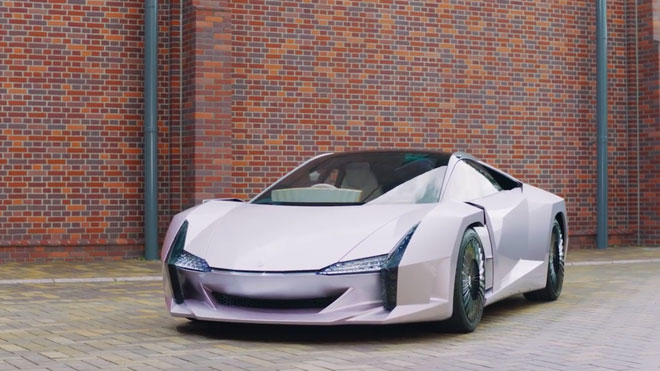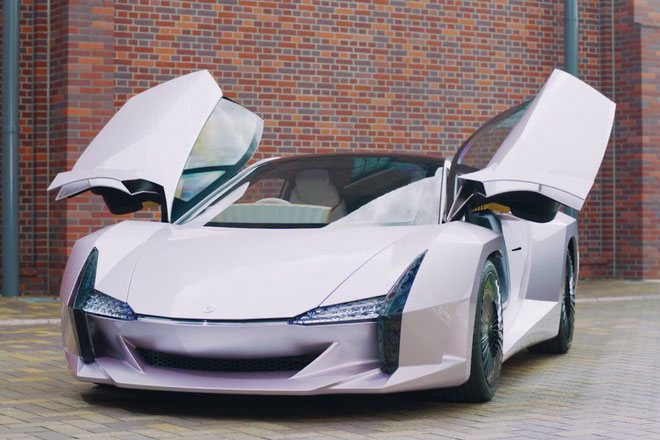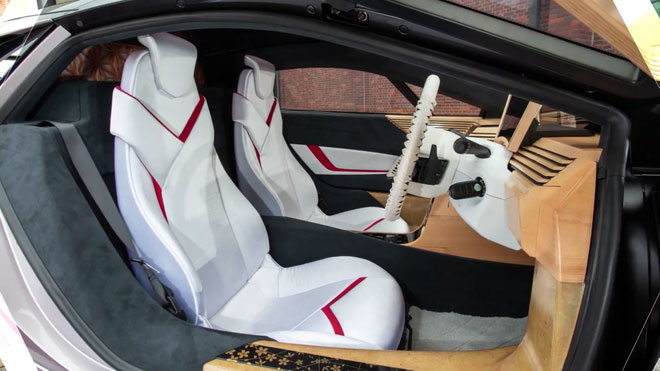Japan produces supercars with materials of natural origin: Lightweight is 1/5 steel but 5 times more supple
CNF has the potential to become the future automobile material.
Weighing only a fifth of the steel but five times stronger, cellulose nanofiber (CNF) nanofibre material will be a new car-making material. It is tough and strong enough to be light enough for cars to glide in the wind; When CNF is used in vehicle manufacturing, we will remove about 2,000 kg of carbon emissions from the life cycle of a vehicle.
CNF is made primarily of wood that is broken up, crushed, and heated in chemicals to remove wood and hemicellulose; The end product is a concentrated, supple and recyclable material. In tests conducted last year, the scientists showed that CNF is even more supple than spider silk.


The car is manufactured from cellulose nanofiber nanofiber nanofiber material (CNF).
New testing also shows that we can use CNF for industrial production. Pouring CNF into the mold, we will get complex shapes and then assemble and make models of many pieces, cars are easy to see. Japan's Ministry of Environment saw the potential of CNF, they want to produce cars that are both light and strong but reduce carbon emissions to the environment.
Kyoto University is the first place to embark on the completion of CNF car production project; they built a supercar with a chassis, the interior was made mostly from CNF. They call this the Nanocellulose Media , or NCV for short, with about 10% less mass than traditional vehicles.

The initial results brought good news, which made many carmakers keep an eye on.
The research team is continuing to test the durability of the NCV, to make sure the super car made from nature can withstand rain, impact. The initial results brought good news, which made many carmakers (including Japanese automaker Toyota) keep an eye on it. If mass production is cheap, this will be the evolution of the auto industry.
- New steel is 62 times more rigid
- Singapore produces super light materials from plastic waste
- Successfully fabricated 'hydrogel' fabric, five times stronger than steel
- This is why fragile spider silk is 5 times stronger than steel
- The development of materials
- Fabrication of new materials is lighter than aerogels, which is 10,000 times harder
- Hardwoods like steel can prevent bullets
- Steel 3D prints stainless and is more resistant to ordinary steel
- Application of cold-formed steel to build an earthquake resistant building
- Video: Super materials withstand the weight of 100,000 itself
- Audi introduces lightweight lightweight composite material
- Create materials 200 times stronger than steel from cooking oil
 The US company is about to build a supersonic passenger plane of 6,000km / h
The US company is about to build a supersonic passenger plane of 6,000km / h Japan develops avatar robot as in fiction film
Japan develops avatar robot as in fiction film Australia tested the world's first mango picking robot
Australia tested the world's first mango picking robot America develops technology to separate water from animal waste
America develops technology to separate water from animal waste